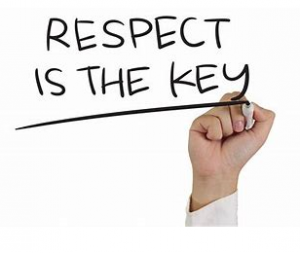
I often think about what courage means during times of adversity.
On the eve of ANZAC day, I find my thoughts drifting to the Diggers of the Great War. Many who had served in the Great War were young enough to have served in both the First and Second World Wars. Yet, they never glorified their deeds and hardly ever spoke about them.
I try to imagine how on the morning of 7 August 1915, 600 men of the Light Horse bravely charged forward in the face of the Turkish machine guns. About 300 Diggers died in this brief and savage action.
Every year, on 25 April, we remember all who have served, and especially those who did not return home.
Australia has never exhibited the militarism which has marked the history of some nations. Ours has always been a reserved patriotism—which is expressed as a commitment to serving the nation when there is a job that needs doing, before a return to a quiet life of family, home and friends.
Perhaps some might have gone off to the Great War of 1914-18 in search of adventure, but after a few months in the trenches of Gallipoli, all romanticism would have been replaced by a grim determination to see the job through.
It must be said, we do so not to glorify war, or hold any deep-seated enmity towards another people.
Why does this matter today?
First, we should never forget those who made the ultimate sacrifice—for their mates, but also for their country, which had asked them to do a job from which they did not shirk.
Second, courage and commitment are found in many corners of the human spirit. The heroes were, and still are, what we would call ‘ordinary Australians’. Hardly any were professional soldiers. They were farmers, grocers, ironmongers, clerks, blacksmiths, teachers and accountants. Some would have been police officers or pubic servants.
We must never forget that our men and women in uniform are first and foremost drawn from our community at large and are not a caste apart.
Third, our national identity is rightly grounded in part in the values that they demonstrated in the Great War—courage and perseverance, the determination to finish the job, and if the hard thing has to be done, the drive to get it done in the face of odds which would daunt many others.
War is terrible and it draws out the worst in the human condition—but it also draws out the very best.
The Diggers of the Great War did not fight for the generals or the politicians, or for abstract strategic plans. But nor did they fight blindly and naively. Their diaries reveal that they were, on the whole, free-thinking and able to act with agency. They maintained their morale, comradeship, sense of duty, and unit cohesion until the end, when many other armies where breaking down amid the madness.
The Diggers knew that the path to a better future and a prosperous peace passed through future fields of death. And that this future could not be realised for as long as tyrants and despots continued to strike down peace-loving peoples for reasons of ‘glory’, and territorial expansion.
The dead of the Great War will always implore us to honour their sacrifice by living the full lives lit by liberty and freedom that they could not.
Today, amidst the Corona Virus crisis, we continue to draw from the bank of freedom that these men and women won for us a century ago, forever hopeful that their sacrifice would shape a brighter future.
This is the least that we can do to honour them.



